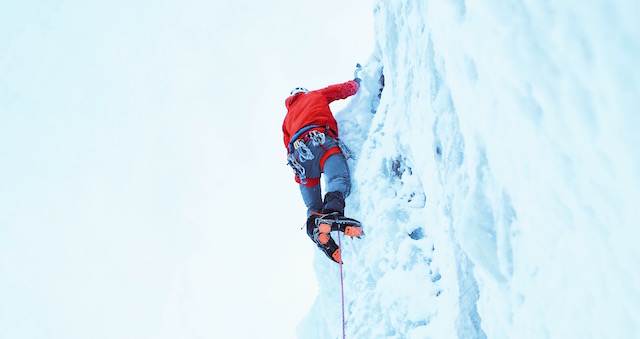It takes effort to make our dreams come true.
But it takes a great deal more to dream the right dream.
As we all know, many of our dreams don’t bring the fulfillment we thought they would, and so we move on to the next ones, often to the same result. Endlessly we struggle to fulfill endless dreams, until the entire process has become a nightmare.
And yet, we press on, wondering what life would be like without dreaming our dreams—however unfulfilling they may be.
After coming out of the 1960s with the nickname “Captain Trips,” I thought I had experienced everything—with one exception. I had never experienced pure renunciation of society. I’d always had a nagging thought that my psychedelic-enhanced meditations were in some way artificial.
I had thought of monastic life, but I feared it—for it would mean giving up far more than psychedelics. I lived to surf, often high, and did so on the North Shore of Oahu, where I counted as friends some of the world’s best surfers. I was living in paradise.
But, the lure of monastic life persisted, and came to a head one day when I walked on the beach at Waikiki with a sign on my board: “For Sale, $100.” The board was purchased within the hour, and my life forever changed.
I had heard of a Manchurian Chan master who was so hard on his disciples that few could endure his presence for more than a month.
Master Hsuan Hua was abbot of Gold Mountain Monastery in San Francisco. He was also the head of the Chan lineage of Chinese Buddhism. Everyone at his monastery ate once a day, slept upright, and endured days of ritual, sutra lectures, and work that began at 4 a.m. and ended at 10 p.m.
I stayed with that master for 10 years, and eventually became the first abbot of the City of Ten Thousand Buddhas, Hua’s second (and largest) monastery.
During this process, I learned something profound about fear: Our fears often prevent us from being open to receiving the tools needed to overcome them. However, we must first face them.
In my case, I was afraid of giving up my freedom, but monastic life forced me to develop skill in meditation through which I discovered real freedom. The Chinese have a saying for this phenomenon when they talk about paper tigers mistaken for real ones.
Now, at age 71 and having left monastic life three decades ago to raise a family in Nepal, I cannot say that I have overcome fear, but I can say I don’t fear it. I realize that it is not necessarily an enemy, unless we make it one by trying to ignore or repress it.
Fear is energy, and when viewed as such, it can be transformed into something positive.
But we must first understand how it works.
Fear rules. We are all subject to it, although many of us are unaware of it. If we live a certain way, all is well, but should we vary even slightly, we begin to feel uncertainty. People become timid standing on uncertain ground, preferring the way well-trodden by themselves and others.
Staying the course doesn’t leave much room for exploring options, but, fearing change, we often do. This does not leave room for growth and breaking through limitations.
Neither does reckless abandon of constraints. We should all explore knowing when to allow fear to govern in a wholesome way, and when to put it aside in favor of our own initiative. Fear can keep us in check in positive ways, but can also constrain us from exploring our boundaries and reaching beyond them.
So, while fear isn’t inherently bad, it is something that should not be given free reign.
Fear should guide us in our explorations, but never be allowed to restrict us only to the familiar.
Good habits are like good friends, offering the security we need to be able to feel comfortable in our lives. Ideally, all our habits would be good, but we know that isn’t the case.
In the same vein, well-placed fear would, ideally, keep us away from vices and attachments, but, here, where it is needed most, that fear is easily overmastered. Conversely, fear most easily dominates us in the areas of life where it has no business being: when we wish to explore our potential.
What a predicament!
Understanding how fear works in our lives is not going to happen without some effort. It must be meditated and reflected upon to gain an impartial perspective that, once gained, should help us work with our fear, which, as mentioned above, does not mean getting rid of it, but rather learning to discern when it is serving us well from when it is blocking us from moving forward.
Fear of the unknown is both the most common kind of fear and the most absurd, so we should target this kind of fear first—sometimes, this kind of fear will even prevent us from thinking our own thoughts! Investigating our thoughts should never be discouraged, for fearing what we may find is a completely ridiculous reason for being timid.
Investigation will help us to be decisive with our thoughts, banishing the ones that hold no promise or benefit and offering a platform to those that should be developed. Many of the thoughts we fear, we fear because of our point of view. If we change that viewpoint by actively working to see our thoughts in a new light, the fear often dissolves.
We often fear change with no basis for doing so. We often prefer complacency to change.
Complacency should never be confused with contentment, though it is. Complacency leads to stagnation, whereas contentment is a virtue. Shaking off complacency and investigating the potential for change does not necessarily lead to success, but at least there the possibility opens. Not so with complacency: If we are not making mistakes, we are probably complacent.
Nobody wants to make mistakes, but fearing making them is itself the greatest mistake of all. Caution and inaction are two different things, but when the former leads to the latter, we become stagnant.
It is better to walk on eggshells and get somewhere than have our feet on solid footing getting nowhere. Whatever our fears may be, whether justified or not, we should rise to the task and not allow ourselves to be overmastered by them. We should take what is ours to take, and not be intimidated by any obstacles.
We must reclaim our innate fearlessness.
~
~
Author: Richard Josephson
Image: Greg Rakozy/Unsplash
Editor: Callie Rushton







Read 0 comments and reply